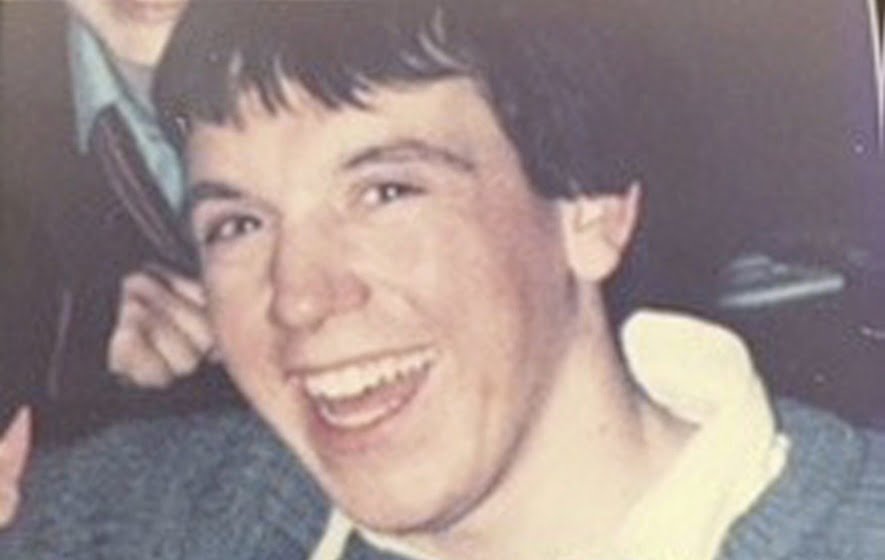‘He posed no threat; but nonetheless, you decided to finish him off’ – Bradley family’s lawyer challenges soldier who fired fatal shots
It was an emotional day today in the Coleraine courthouse as Soldier C gave evidence in the inquest into 20-year-old Francis Bradley’s death in 1986. Soldier C has also been involved in the shooting death of at least three other men in the north of Ireland, but for pragmatic and resource purposes solicitors were not permitted to reference those cases in this inquest.
Mr Bradley’s younger brothers were present in court, and other members of his family attended the hearing through video link.
A 1986 deposition, which has been attributed to Soldier C that he now refuses to acknowledge as evidence, describes the circumstances under which Soldier C and his colleague, Soldier A, shot and killed Francis Bradly. In the inquest today, however, Soldier C refused to answer any questions relating to the 1986 document. Instead, he relied entirely on a recent statement he made in February 2024, in which he invoked his right not to self-incriminate during these inquest proceedings.
Karen Quinlivan KC, representing Francis Bradley’s family, questioned Soldier C on his account of the events and the yellow card in place at the time. The yellow card is the commonly used name for a document issued to soldiers, which outlined the circumstances and manner in which soldiers could use lethal force. Soldier C declined to answer most of Ms Quinlivan’s questions, citing his privilege against self-incrimination. Despite Soldier C’s reticence, the evidence paints a clear and bleak picture of the night’s events.
Francis Bradley entered the area which the soldiers had been tasked with observing, and Mr Bradley was unaware of the soldiers’ presence until Soldier A shouted for Mr Bradley to ‘halt.’ This shout failed to identify the soldiers as State forces and was the first of many yellow card violations that night. After issuing the instruction to halt, Soldier A fired a single shot at Mr Bradley, striking him in the pelvis. Pathology evidence shows that Mr Bradley was turned away from the soldiers when he was hit by this first bullet. The rest of the shots, including the three fatal rounds, were all fired by Soldier C in several bursts of automatic gunfire. According to the pathological evidence, all of Soldier C’s shots were fired when Mr Bradley was already severely wounded and either on his hands and knees or lying on his back on the ground. The evidence further states that the three fatal rounds – a burst of automatic gunfire by Soldier C – struck Mr Bradley in the stomach while he was lying on his back on the ground. Ms Quinlivan gave Soldier C the chance to comment on or refute these allegations. Soldier C invoked his privilege not to self-incriminate and declined to respond.
A recently disclosed letter of instruction from Devonshires (the lawyers representing the former soldiers) to a medical professor contradicts and raises serious concerns about Soldier C’s evidence. The letter makes several claims which contradict Soldier C’s accounts in both the 1986 and 2024 statements, and which suggest that Soldier C provided additional information to his solicitors in an attempt to justify his use of lethal force. Although Soldier C denied instructing his solicitors about the letter, he declined to comment on whether or not he provided the new information contained in the letter.
Even if one accepted Soldier C’s various accounts, Ms Quinlivan argued that at no point was there any justification for Soldier C’s decision to shoot and kill Francis Bradley.
Ms Quinlivan’s final question to Soldier C was a moving summary of the evidence heard in court today: ‘The worst aspect of all of this [is that] evidence clearly suggests that when he sustained fatal wounds, Francis Bradley was laying on his back on the ground. And you fired three shots on automatic into his abdomen, causing death. I’m going to suggest to you, Soldier C, that you executed Francis Bradley deliberately – knowing that he was seriously wounded, knowing that he posed no threat; but nonetheless, you decided to finish him off.’ Soldier C invoked his right not to self-incriminate and refused to comment.
The inquest is scheduled to conclude this April.











